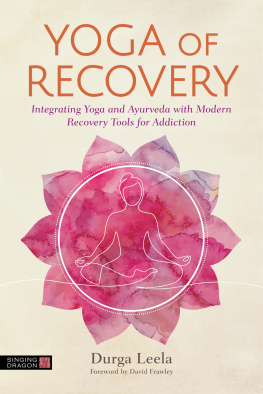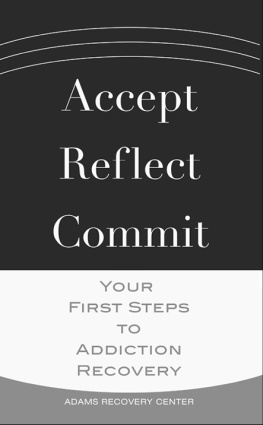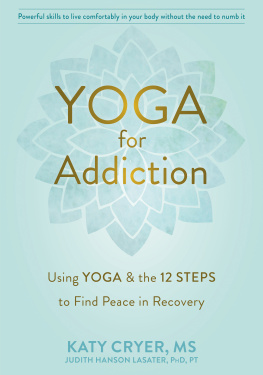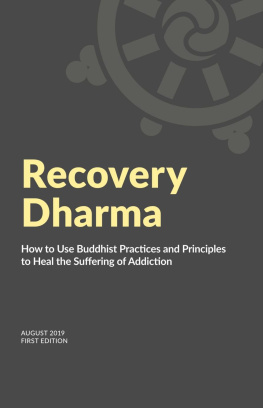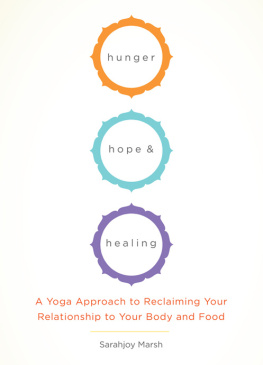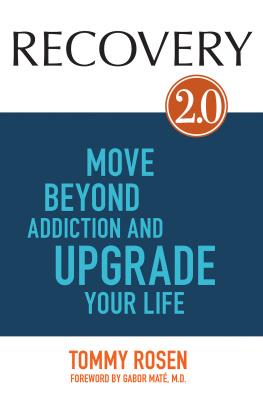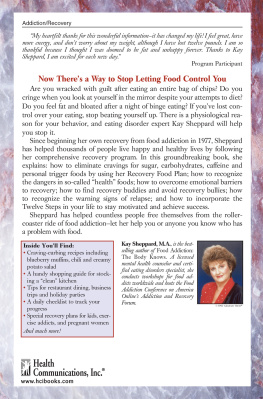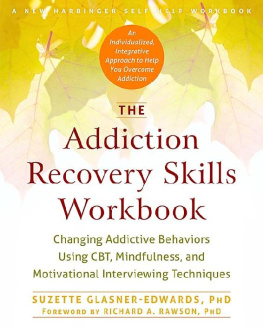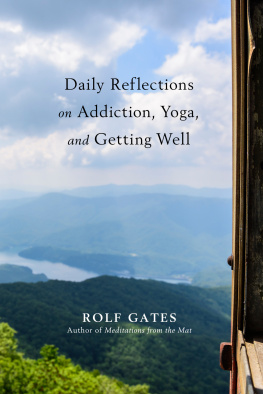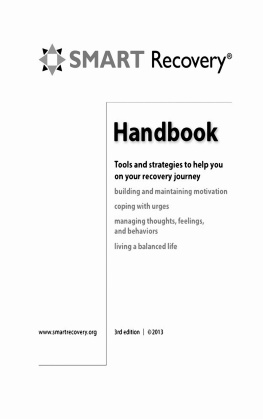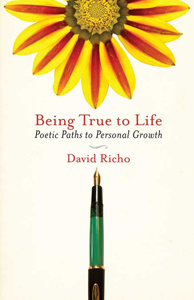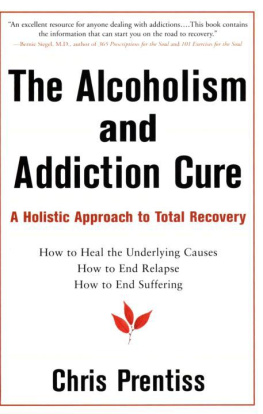Contents
Page list

of related interest
Yoga Therapy for Fear
Treating Anxiety, Depression and Rage with the Vagus Nerve and Other Techniques
Beth Spindler
ISBN 978 1 84819 374 1
eISBN 978 0 85701 331 6
Yoga for Grief and Loss
Poses, Meditation, Devotion, Self-Reflection, Selfless Acts, Ritual
Karla Helbert
Foreword by Chinnamasta Stiles
ISBN 978 1 84819 204 1
eISBN 978 0 85701 163 3
The Chakras in Grief and Trauma
A Tantric Guide to Energetic Wholeness
Karla Helbert
Illustrated by Rachel Rosenkoetter
ISBN 978 1 84819 365 9
eISBN 978 0 85701 324 8
Teen Yoga for Yoga Therapists
A Guide to Development, Mental Health and Working with Common Teen Issues
Charlotta Martinus
Foreword by Sir Anthony Seldon
ISBN 978 1 84819 399 4
eISBN 978 0 85701 355 2
YOGA OF
RECOVERY
Integrating Yoga and Ayurveda with
Modern Recovery Tools for Addiction
DURGA LEELA
Foreword by David Frawley

First published in Great Britain in 2022 by Singing Dragon, an imprint of Jessica Kingsley Publishers
An imprint of Hodder & Stoughton Ltd
An Hachette Company
Copyright Durga Leela 2022
Foreword David Frawley 2022
All rights reserved. No part of this publication may be reproduced, stored in a retrieval system, or transmitted, in any form or by any means without the prior written permission of the publisher, nor be otherwise circulated in any form of binding or cover other than that in which it is published and without a similar condition being imposed on the subsequent purchaser.
The information contained in this book is not intended to replace the services of trained medical professionals or to be a substitute for medical advice. The complementary therapy described in this book may not be suitable for everyone to follow. You are advised to consult a doctor before embarking on any complementary therapy program and on any matters relating to your health, and in particular on any matters that may require diagnosis or medical attention.
A CIP catalogue record for this title is available from the British Library and the Library of Congress
ISBN 978 1 78775 755 4
eISBN 978 1 78775 756 1
Jessica Kingsley Publishers policy is to use papers that are natural, renewable and recyclable products and made from wood grown in sustainable forests. The logging and manufacturing processes are expected to conform to the environmental regulations of the country of origin.
Jessica Kingsley Publishers
Carmelite House
50 Victoria Embankment
London EC4Y 0DZ
www.singingdragon.com
Contents
Acknowledgments
Every step of this journey has been guided by community, inspired by teachers and mentors. I offer great gratitude to David Frawley whose many books have guided me and whose words you will find abundantly in this book. I thank Swami Sitaramananda, Swami Swaroopananda, Swami Karunananda and all the staff at the Sivananda and Integral Yoga ashrams and centers for hosting Yoga of Recovery since 2005. I thank Dr. Claudia Welch, Dr. Ramkumar Kutty and Dr. Robert Svoboda who have all contributed greatly through their teaching, articles and books. I am grateful to Richard Miller and his team for the years of work they have done to get iRest approved as a complementary and alternative medicine warranting continuing research for its use in the treatment of PTSD and as a Tier 1 approach for addressing pain management in military care.
Other supporters are Michele Lawrence (Inner Peace Yoga Therapy), Monique Lonner (Soul of Yoga), Tommy Rosen (Recovery 2.0), Phil Valentine (CCAR), Jivana Heyman (Accessible Yoga), Amanda Ree (Chopra Center and now Sama Dog), Nirmala Raniga (Chopra Addiction and Wellness Center), Sarahjoy Marsh (Daya Foundation), Felicia Tomasko (LA Yoga and Ayurveda) and Abby (Abhaya) Geyer (NAMA and IAYT) and Nikky Myers (Y12SR). Thank you for championing the Yoga of Recovery conversation within your offerings. Deep gratitude and love to all the YoR assistants over the years, I could not have done this without your support.
Thank you Grace Welker for helping me form the structure and words of this book. Thanks to Tarini (Shanna Ramakrishnan) for coaxing me to show up on social media. And finally thanks to my family, friends, sponsors and especially my husband Vanasiva/Josh, for sticking by me through all these years.
I offer my sincere thanks to the people who truly make Yoga of Recoveryeveryone who has come to YoR retreats and courses over the years, and everyone we are yet to meet. You are all very special to me. I am honored to be in a healing circle with you and hope this book will help widen our circle so we can stick together and continue to heal the heartache addiction causes.
FOREWORD
Addiction has become one of the worlds main health problems at both a physical and psychological level: it affects young and old alike and is reaching epidemic proportions, including in the USA. There are many types, from sugar and food to alcohol, recreational and pharmaceutical drugs, as well as behavioral and media addictions.
The question is not only how to treat addiction at a chemical levelwhich has been widely exploredbut also how to treat it at the more fundamental behavioral, mind and consciousness levels. New insights are clearly needed to broaden the basis of treatment and help those in recovery from falling back into old patterns. This is where Yoga and related Ayurvedic approaches are helpful, as they offer a new, transformative view of self-awareness to counter compulsions.
According to Yoga, the mind tends toward addiction. Part of this is simply because our behavior is habitual and conditioned, based upon external stimuli that we can easily become attached to. We compulsively go after what affords us pleasure or distraction, or gives us a state of inebriation, in which our problems can temporarily be forgotten.
Yoga and Ayurvedic practitioners commonly come into contact with clients who suffer from addiction at various levels. Yoga of Recovery provides them the special insight and practices they can share to address this increasing problem in a fundamental manner. While several books have addressed the problem of addiction through discussions of Yogic ideas and the relevance of meditation, this book is perhaps the most specific and in depth, and brings in Ayurveda in a primary and detailed manner.
Durga Leela experienced a life-threatening addiction and discovered how to use Yoga and Ayurveda to recover.
She began teaching others how to do the same, and has now taught worldwide for many years with the renowned Sivananda Yoga organization. She brings a rare experience of treating addiction at both a personal level and as a trained Yoga teacher. Her book has a deep spiritual perspective, but also offers a practical approach that can be adopted by anyone.
As someone who has taught Yoga and Ayurveda for several decades and also knows Durga and has discussed these topics with her, I am happy to endorse her approach and hope that everyone working in the field of addiction, especially with a respect for Yoga and Ayurveda, will examine this book carefully.
According to Yoga philosophy, happiness and bliss is our original divine nature. But to experience it we must learn how to calm the mind and live in harmony with our unique constitution, as guided by a spiritual aspiration. To achieve this, Yoga, Ayurveda and meditation are essential. May this inspiring book help its readers reclaim that inner happiness and learn how to counter the addictive tendencies of the mind as part of total well-being!

